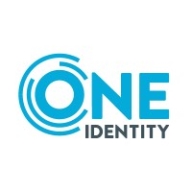

RSA Adaptive Authentication and One Identity Defender are two well-regarded authentication solutions, each with distinct strengths. Based on user reviews, RSA Adaptive Authentication excels in user support, while One Identity Defender offers superior features that justify its price.
What features are offered by RSA Adaptive Authentication in comparison to One Identity Defender?RSA Adaptive Authentication is praised for its robust risk-based authentication and identity assurance, as well as its flexibility and scalability. One Identity Defender stands out with its comprehensive set of authentication methods, seamless integration with various third-party applications, and extensive feature set.
What areas of improvement can be found in RSA Adaptive Authentication in comparison to One Identity Defender?RSA Adaptive Authentication users note areas needing enhancement such as more intuitive administration and streamlined deployment processes. One Identity Defender users mention the need for improved documentation, better mobile app functionality, and enhancements in customer support.
How is the ease of deployment and customer service of RSA Adaptive Authentication in comparison to One Identity Defender?RSA Adaptive Authentication is reported to have a straightforward deployment model, supported by responsive customer service. One Identity Defender's deployment is also user-friendly, though its customer service receives mixed reviews.
What setup costs and ROI can be seen with RSA Adaptive Authentication in comparison to One Identity Defender?RSA Adaptive Authentication is appreciated for its transparent pricing and notable ROI, as users consider it a worthwhile investment for its robust capabilities. One Identity Defender, while potentially higher in cost, is deemed worth the investment due to its advanced features and reliable performance.
| Product | Market Share (%) |
|---|---|
| RSA Adaptive Authentication | 1.5% |
| One Identity Defender | 1.5% |
| Other | 97.0% |

| Company Size | Count |
|---|---|
| Midsize Enterprise | 1 |
| Large Enterprise | 6 |
Defender enhances security by requiring two-factor authentication to gain access to your network resources. Defender uses your current identity store within Microsoft Active Directory (AD) to enable two-factor authentication.
We monitor all Authentication Systems reviews to prevent fraudulent reviews and keep review quality high. We do not post reviews by company employees or direct competitors. We validate each review for authenticity via cross-reference with LinkedIn, and personal follow-up with the reviewer when necessary.